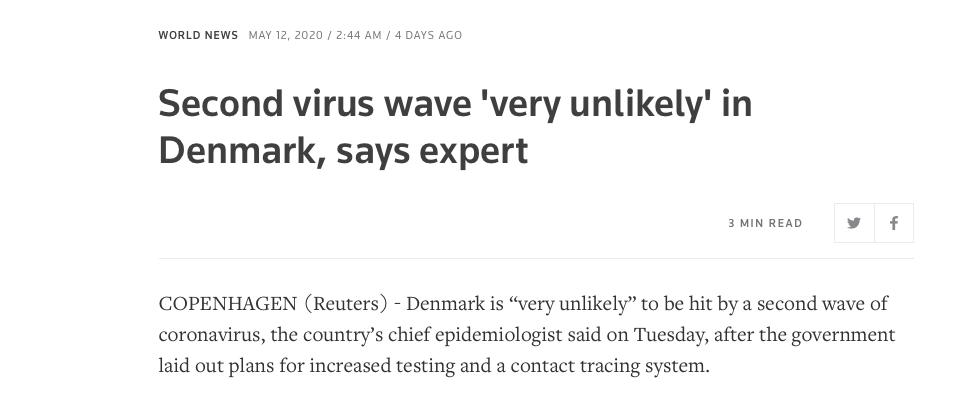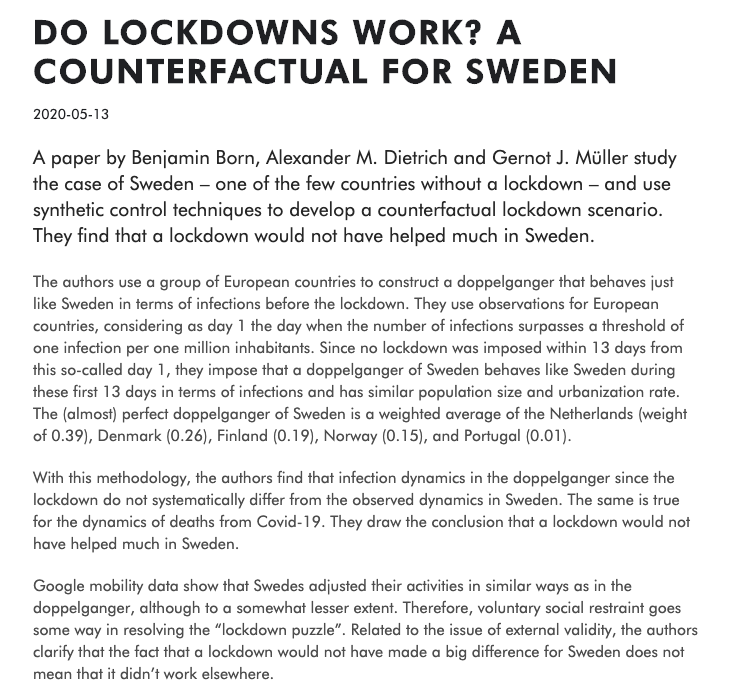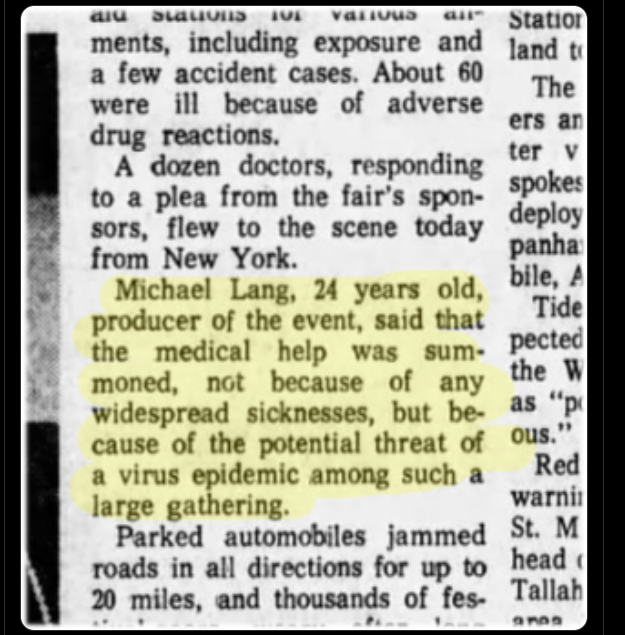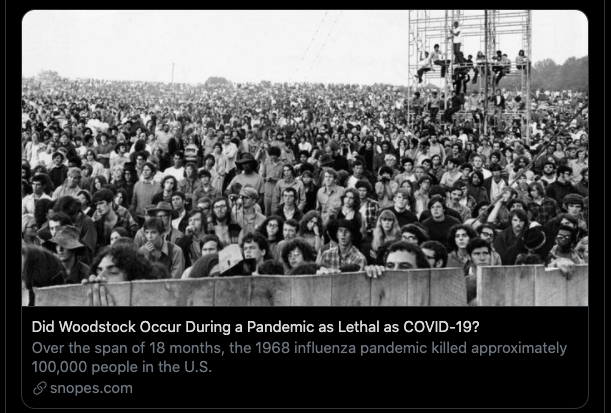Today Denmark, which reopened its schools on April 15th, declared its first day of no Covid-19 deaths since the pandemic began. Denmark’s state epidemiologist also recently said a second wave is “very unlikely.”
The following if from 2006 survey of disease mitigation strategies by several top epidemiologists, who back then called lockdown-style quarantines “a throwback to antiquated disease theory.” They said furthermore it should be eliminated from serious consideration as a disease mitigation measure.

This one comes from a recent paper by Benjamin Born, Alexander M. Dietrich, and Gernot J. Müller:
(Link)
On the subject of the Hong Kong flu of 1968-69, which killed more than a million people worldwide, some of us who’ve written about it have come under fire, first on putatively factual grounds — specifically, that it wasn’t true — and secondly for daring to suggest that it could be in the same realm as the mythic Covid-19. Now, however, since the facts speak entirely for themselves — and the only thing required is to read a little history — the “fact check” genre has shifted to the genre of “It’s true, but we don’t like that it’s true.”
Here, for reference, is an August 1969 interview with Woodstock’s organizer at the event itself, in which it’s acknowledged that virus precautions they were taken:
USA Today concedes:
Even Snopes, which definitely leans left, as well concedes.
Yet their wild claim that today, for Covid-19, without draconian lockdowns “one million Americans would have died” is absolute unequivocal conjecture — nonsense, actually, completely unsubstantiated by any data and beyond the realm of believability. If anything, the lockdowns will have caused more death. Don’t believe it? Keep reading.
Also, this afternoon the state of Colorado just cut its reported #COVID deaths by almost 25 percent: from 1150 cases to 878:

UPDATE: This will make you sick — not with Covid-19 but with disgust. It’s from the British Medical Journal (BMJ), which is one of the oldest and most venerable medical journals in the world, its provenance dating back to 1840, when it united with the London Journal of Medicine:
… David Spiegelhalter, chair of the Winton Centre for Risk and Evidence Communication at the University of Cambridge, said that covid-19 did not explain the high number of deaths taking place in the community.
At a briefing hosted by the Science Media Centre on 12 May he explained that, over the past five weeks, care homes and other community settings had had to deal with a “staggering burden” of 30?000 more deaths than would normally be expected, as patients were moved out of hospitals that were anticipating high demand for beds.
Of those 30?000, only 10?000 have had covid-19 specified on the death certificate. While Spiegelhalter acknowledged that some of these “excess deaths” might be the result of underdiagnosis, “the huge number of unexplained extra deaths in homes and care homes is extraordinary. When we look back . . . this rise in non-covid extra deaths outside the hospital is something I hope will be given really severe attention.”
He added that many of these deaths would be among people “who may well have lived longer if they had managed to get to hospital.”
Underlying causes
David Leon, professor of epidemiology at the London School of Hygiene & Tropical Medicine, agreed. “Some of these deaths may not have occurred if people had got to hospital,” he said. “How many is unclear. This issue needs urgent attention, and steps taken to ensure that those who would benefit from hospital treatment and care for other conditions can get it.”
Also at the briefing was Jason Oke, senior statistician at the Nuffield Department of Primary Care Health Sciences at the University of Oxford, who explained that equivalent data on excess deaths in Scotland2 were classified by the underlying cause of death—including dementia, as well as circulatory, cancer, and respiratory causes. In the first week after lockdown a spike in deaths occurred from all causes, but “we now have a return to normality for all except dementia,” he explained. He called for the ONS to report on excess deaths in a similar way.
Responding to the latest figures, Jennifer Dixon, chief executive of the Health Foundation think tank, said, “Today’s data show that action to tackle the coronavirus pandemic in social care has been late and inadequate, and has highlighted significant weaknesses in the social care system due to decades of neglect and lack of reform. Covid-19 has ultimately magnified the human impact of decades of underfunding in the sector and policy neglect.”
In total, England and Wales have recorded 34?978 covid-19 deaths from 28 December 2019 to 9 May this year. More than 22?600 of the deaths occurred in hospitals and 7400 in care homes.
(Link)





